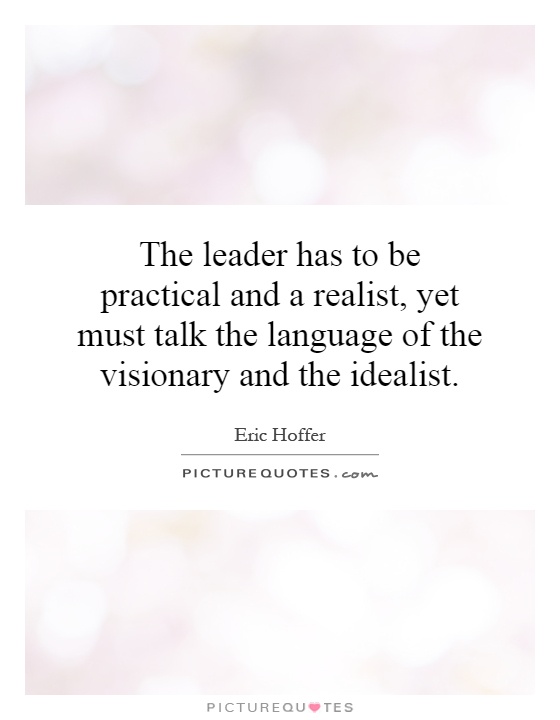The leader has to be practical and a realist, yet must talk the language of the visionary and the idealist

The leader has to be practical and a realist, yet must talk the language of the visionary and the idealist
Eric Hoffer, a renowned American philosopher and author, believed that a successful leader must possess a unique combination of practicality and idealism. In his book "The True Believer," Hoffer explores the characteristics of effective leaders and the importance of balancing realism with visionary thinking.Hoffer argues that a leader must be practical and grounded in reality in order to effectively navigate the complexities of the world. Practicality allows a leader to make informed decisions based on facts and evidence, rather than relying on wishful thinking or unrealistic expectations. A practical leader is able to assess situations objectively, identify potential challenges, and develop strategic solutions to address them. This pragmatic approach is essential for achieving tangible results and driving progress within an organization or community.
However, Hoffer also emphasizes the importance of visionary thinking and idealism in leadership. A leader must be able to inspire and motivate others by articulating a compelling vision for the future. By speaking the language of the visionary and the idealist, a leader can rally support, foster innovation, and drive positive change. Visionary leaders are able to see beyond the status quo and imagine new possibilities, challenging the norms and pushing boundaries to achieve greater success.
Hoffer's philosophy suggests that a successful leader must strike a delicate balance between practicality and idealism. By combining these seemingly contradictory traits, a leader can effectively navigate the complexities of the world while inspiring others to strive for greatness. This dual approach allows a leader to address immediate challenges with a realistic mindset, while also envisioning a brighter future and motivating others to work towards a common goal.












 Friendship Quotes
Friendship Quotes Love Quotes
Love Quotes Life Quotes
Life Quotes Funny Quotes
Funny Quotes Motivational Quotes
Motivational Quotes Inspirational Quotes
Inspirational Quotes